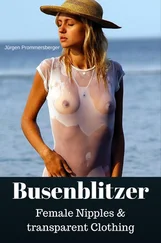Vladimir Nabokov - Transparent things
Здесь есть возможность читать онлайн «Vladimir Nabokov - Transparent things» весь текст электронной книги совершенно бесплатно (целиком полную версию без сокращений). В некоторых случаях можно слушать аудио, скачать через торрент в формате fb2 и присутствует краткое содержание. Жанр: Классическая проза, на английском языке. Описание произведения, (предисловие) а так же отзывы посетителей доступны на портале библиотеки ЛибКат.
- Название:Transparent things
- Автор:
- Жанр:
- Год:неизвестен
- ISBN:нет данных
- Рейтинг книги:3 / 5. Голосов: 1
-
Избранное:Добавить в избранное
- Отзывы:
-
Ваша оценка:
- 60
- 1
- 2
- 3
- 4
- 5
Transparent things: краткое содержание, описание и аннотация
Предлагаем к чтению аннотацию, описание, краткое содержание или предисловие (зависит от того, что написал сам автор книги «Transparent things»). Если вы не нашли необходимую информацию о книге — напишите в комментариях, мы постараемся отыскать её.
Transparent things — читать онлайн бесплатно полную книгу (весь текст) целиком
Ниже представлен текст книги, разбитый по страницам. Система сохранения места последней прочитанной страницы, позволяет с удобством читать онлайн бесплатно книгу «Transparent things», без необходимости каждый раз заново искать на чём Вы остановились. Поставьте закладку, и сможете в любой момент перейти на страницу, на которой закончили чтение.
Интервал:
Закладка:
Received on the day of the writer's death. File under Repos – R.
22
Person hated the sight and the feel of his feet. They were uncommonly graceless and sensitive. Even as a grown man he avoided looking at them when undressing. Hence he escaped the American mania of going barefoot at home – that throwback across childhood to plainer and thriftier times. What a jaggy chill he experienced at the mere thought of catching a toenail in the silk of a sock (silk socks were out, too)! Thus a woman shivers at the squeak of a rubbed pane. They were knobby, they were weak, they always hurt. Buying shoes equaled seeing the dentist. He now cast a long look of dislike at the article he had bought at Brig on the way to Witt. Nothing is ever wrapped up with such diabolical neatness as a shoebox. Ripping the paper off afforded him nervous relief. This pair of revoltingly heavy brown mountain boots had already once been tried on in the shop. They were certainly the right size, and quite as certainly they were not as comfortable as the salesman assured him they were. Snug, yes, but oppressively so. He pulled them on with a groan and laced them with imprecations. No matter, it must be endured. The climb he contemplated could not be accomplished in town shoes: the first and only time he had attempted to do so, he had kept losing his footing on slippery slabs of rock. These at least gripped treacherous surfaces. He also remembered the blisters inflicted by a similar pair, but made of chamois, that he had acquired eight years ago and thrown away when leaving Witt. Well, the left pinched a little less than the right – lame consolation.
He discarded his dark heavy jacket and put on an old windbreaker. As he went down the passage he encountered three steps before reaching the lift. The only purpose he could assign to them was that they warned him he was going to suffer. But he dismissed the little ragged edge of pain, and lit a cigarette.
Typically, in the case of a second-rate hotel, its best view of the mountains was from the corridor windows at its north end. Dark, almost black rocky heights streaked with white, some of the ridges blending with the sullen overcast sky; lower down the fur of coniferous forests, still lower the lighter green of fields. Melancholy mountains! Glorified lumps of gravity!
The floor of the valley, with the townlet of Witt and various hamlets along a narrow river, consisted of dismal small meadows, with barbed-wire fences enclosing them and with a rank flowering of tall fennel for sole ornament. The river was as straight as a canal and all smothered in alder. The eye roamed wide but found no comfort in taking in the near and the far, this muddy cowtrack athwart a mowed slope or that plantation of regimented larches on the opposite rise.
The first stage of his revisitation (Person was prone to pilgrimages as had been a French ancestor of his, a Catholic poet and well-nigh a saint) consisted of a walk through Witt to a cluster of chalets on a slope above it. The town-let itself seemed even uglier and stragglier. He recognized the fountain, and the bank, and the church, and the great chestnut tree, and the cafe. And there was the post office, with the bench near its door waiting for letters that never came.
He crossed the bridge without stopping to listen to the vulgar noise of the stream which could tell him nothing. The slope had a fringe of firs at the top and beyond them stood additional firs – misty phantoms or replacement trees – in a grayish array under rain clouds. A new road had been built and new houses had grown, crowding out the meager landmarks he remembered or thought he remembered.
He now had to find Villa Nastia, which still retained a dead old woman's absurd Russian diminutive. She had sold it just before her last illness to a childless English couple. He would glance at the porch, as one uses a glazed envelope to slip in an image of the past.
Hugh hesitated at a street corner. Just beyond it a woman was selling vegetables from a stall. Est-ce que vous savez, Madame – Yes, she did, it was up that lane. As she spoke, a large, white, shivering dog crawled from behind a crate and with a shock of futile recognition Hugh remembered that eight years ago he had stopped right here and had noticed that dog, which was pretty old even then and had now braved fabulous age only to serve his blind memory.
The surroundings were unrecognizable – except for the white wall. His heart was beating as after an arduous climb. A blond little girl with a badminton racket crouched and picked up her shuttlecock from the sidewalk. Farther up he located Villa Nastia, now painted a celestial blue. All its windows were shuttered.
23
Choosing one of the marked trails leading into the mountains, Hugh recognized another detail of the past, namely the venerable inspector of benches – bird-defiled benches as old as he – that were rotting in shady nooks here and there, brown leaves below, green leaves above, by the side of a resolutely idyllic footpath ascending toward a waterfall. He remembered the inspector's pipe studded with Bohemian gems (in harmony with its owner's furuncular nose) and also the habit Armande had of exchanging ribald comments in Swiss-German with the old fellow while he was examining the rubbish under a cracked seat.
The region now offered tourists an additional number of climbs and cableways as well as a new motorcar road from Witt to the gondola station which Armande and her friends used to reach on foot. In his day Hugh had carefully studied the public map, a great Carte du Tendre or Chart of Torture, spread out on a billboard near the post office. Had he wished now to travel in comfort to the glacier slopes he could have taken the new bus which connected Witt with the Drakonita cable car. He wanted, however, to do it the old hard way and to pass through the unforgettable forest on his way up. He hoped the Drakonita gondola would be the remembered one – a small cabin with two benches facing each other. It rode up keeping some twenty yards above a strip of turfy slope in a cutting between fir trees and alder bushes. Every thirty seconds or so it negotiated a pylon with a sudden rattle and shake but otherwise glided with dignity.
Hugh's memory had bunched into one path the several wood trails and logging roads that led to the first difficult stage of the ascent – namely, a jumble of boulders and a jungle of rhododendrons, through which one struck upward to reach the cable car. No wonder he soon lost his way.
His memory, in the meantime, kept following its private path. Again he was panting in her merciless wake. Again she was teasing Jacques, the handsome Swiss boy with fox-rcd body hair and dreamy eyes. Again she flirted with the eclectic English twins, who called gullies Cool Wars and ridges Ah Rates. Hugh, despite his tremendous physique, had neither the legs nor the lungs to keep up with them even in memory. And when the foursome had accelerated their climbing pace and vanished with their cruel ice axes and coils of rope and other instruments of torture (equipment exaggerated by ignorance), he rested on a rock, and, looking down, seemed to see through the moving mists the making of the very mountains that his tormentors trod, the crystalline crust heaving up with his heart from the bottom of an immemorial more (sea). Generally, however, he would be urged not to straggle after them even before they were out of the forest, a dismal group of old firs, with steep muddy paths and thickets of wet willow herb.
He now ascended through that wood, panting as painfully as he had in the past when following Armande's golden nape or a huge knapsack on a 'naked male back. As then the pressure of the shoecap upon his right foot had soon scraped off a round of skin at the joint of the third toe, resulting in a red eye burning there through every threadbare thought. He finally shook the forest off and reached a rock-strewn field and a barn that he thought he recalled, but the stream where he had once washed his feet and the broken bridge which suddenly spanned the gap of time in his mind were nowhere to be seen. He walked on. The day seemed a little brighter but presently a cloud palmed the sun again. The path had reached the pastures. He noticed a large white butterfly drop outspread on a stone. Its papery wings, blotched with black and maculated with faded crimson, had transparent margins of an unpleasant crimped texture, which shivered slightly in the cheerless wind. Hugh disliked insects; this one looked particularly gross. Nevertheless, a mood of unusual kindliness made him surmount the impulse to crush it under a blind boot. With the vague idea that it must be tired and hungry and would appreciate being transferred to a nearby pincushion of little pink flowers, he stooped over the creature but with a great shuffle and rustle it evaded his handkerchief, sloppily flapped to overcome gravity, and vigorously sailed away.
Читать дальшеИнтервал:
Закладка:
Похожие книги на «Transparent things»
Представляем Вашему вниманию похожие книги на «Transparent things» списком для выбора. Мы отобрали схожую по названию и смыслу литературу в надежде предоставить читателям больше вариантов отыскать новые, интересные, ещё непрочитанные произведения.
Обсуждение, отзывы о книге «Transparent things» и просто собственные мнения читателей. Оставьте ваши комментарии, напишите, что Вы думаете о произведении, его смысле или главных героях. Укажите что конкретно понравилось, а что нет, и почему Вы так считаете.










